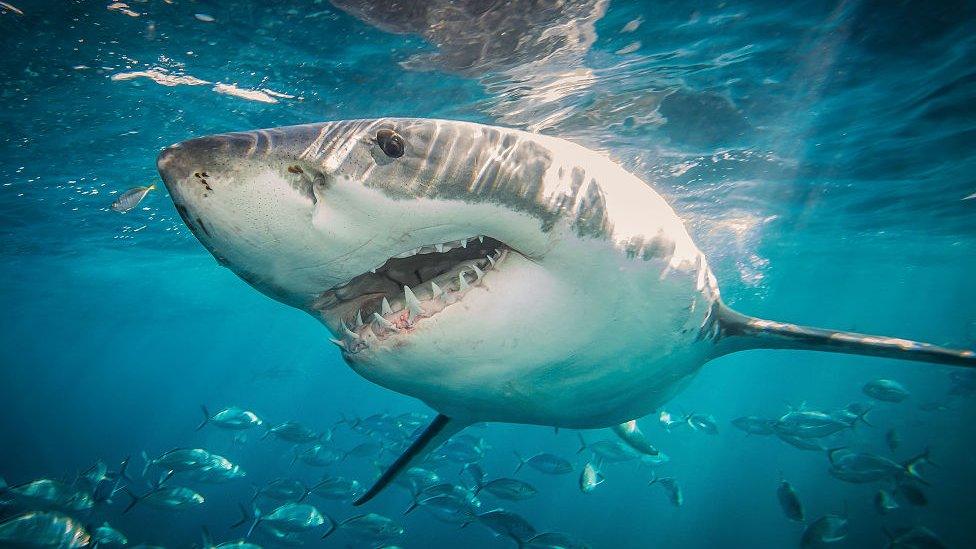How sharks are helping to save the oceans
- Published
- comments

It turns out that sharks are really important in helping maintain and rebuild the world's oceans.
That's according to a newly released scientific study which has been looking at sharks and their role in the ocean.
A team at Florida International University found that predators, like sharks, are crucial for maintaining the balance of ecosystems in the ocean.
They found that sharks play a really important role in helping oceans recover from extreme natural events like hurricanes or marine heatwaves.
The scientists studied the effects of an extreme marine heatwave in 2011, which wiped out a quarter of the world's largest seagrass meadows in Shark Bay, Australia.
The sharks mainly feed on animals - such as turtles - that eat aquatic plants like the seagrass there.
Seagrass is a plant that helps the environment by storing carbon dioxide and by housing fish and other organisms that can keep seas healthy.
The seagrass took a long time to grow back after the heatwave but it was helped by the seasonal presence of the sharks, who only go there during certain times in the year.
A community of animals, plants and microorganisms, together with their habitat is called an ecosystem.
For example, a pond ecosystem may consist of a pond habitat, inhabited by aquatic plants, microorganisms in the mud at the bottom, fish in the water and a heron on the bank.
The scientists decided to test what would happen if the sharks never returned so set up an experiment which allowed the grazing animals to have a free reign eating the seagrass.
They found that the seagrass had no time to recover and that the ecosystem had been badly damaged by the absence of the sharks.
Dr Mike Heithaus, who co-authored the study, said: "When everything is hunky dory, we might not realise how important predators are. But when things go wrong - like a climatic event - that's when you can see the importance of predators."
Since 1970, the number of sharks worldwide has fallen by 71 percent.
In the Journal of Animal Ecology, the scientists warned that, without sharks, the world's oceans will become far less resilient to extreme climate events.
- Published19 February 2019
- Published28 January 2021
